THREAD on current Covid situation in the UK:
TLDR: rapidly coming down from recent Omicron BA.2 peak but consequences of high infections are becoming clear.
Covering vax, infections, hospitals, deaths, long covid, variants...
1/14
TLDR: rapidly coming down from recent Omicron BA.2 peak but consequences of high infections are becoming clear.
Covering vax, infections, hospitals, deaths, long covid, variants...
1/14
On vaccination: we've made good progress in giving eligible adults their 4th dose but less well on boosting immuno-compromised adults.
But vax of 5-11 yrs is basically not happening. Many will be ineligible due to recent covid infection, not enough to explain low numbers 2/14


But vax of 5-11 yrs is basically not happening. Many will be ineligible due to recent covid infection, not enough to explain low numbers 2/14
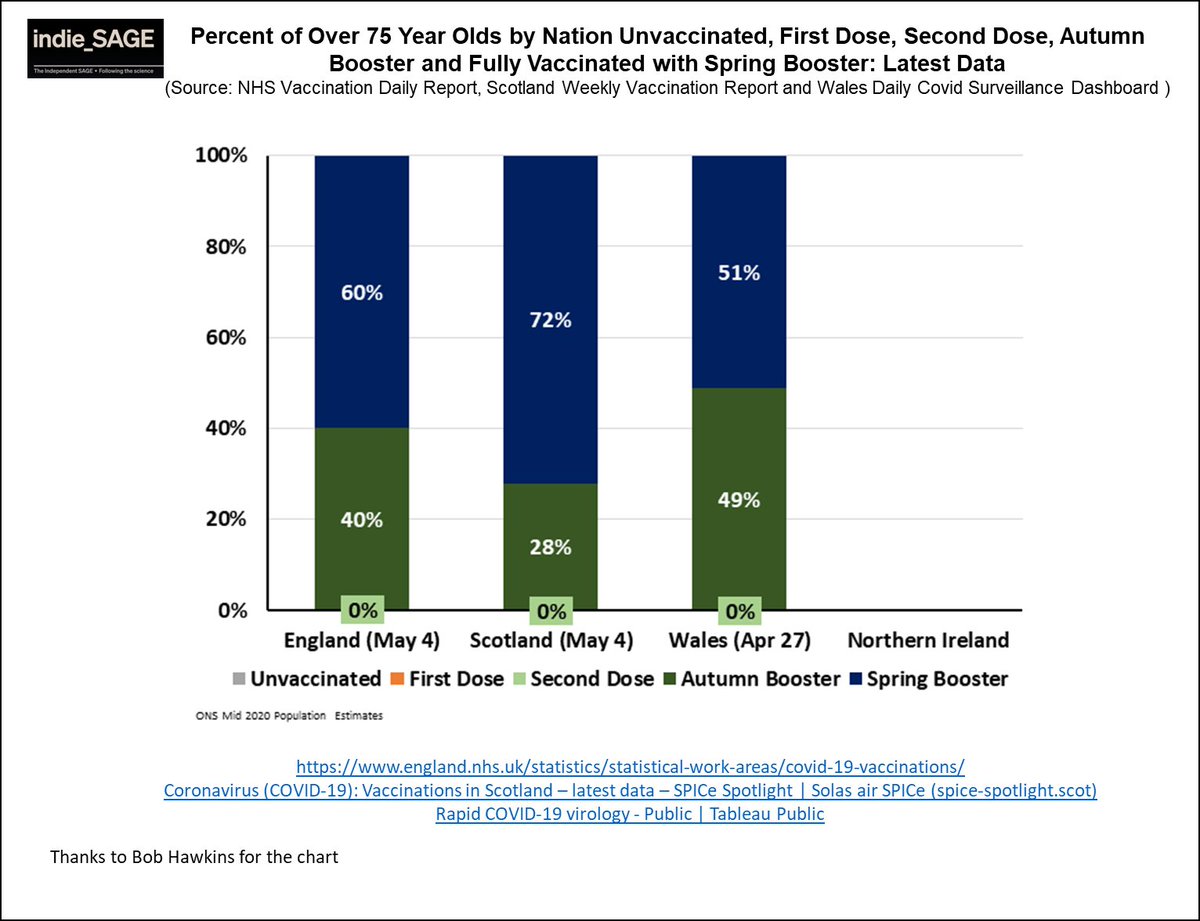
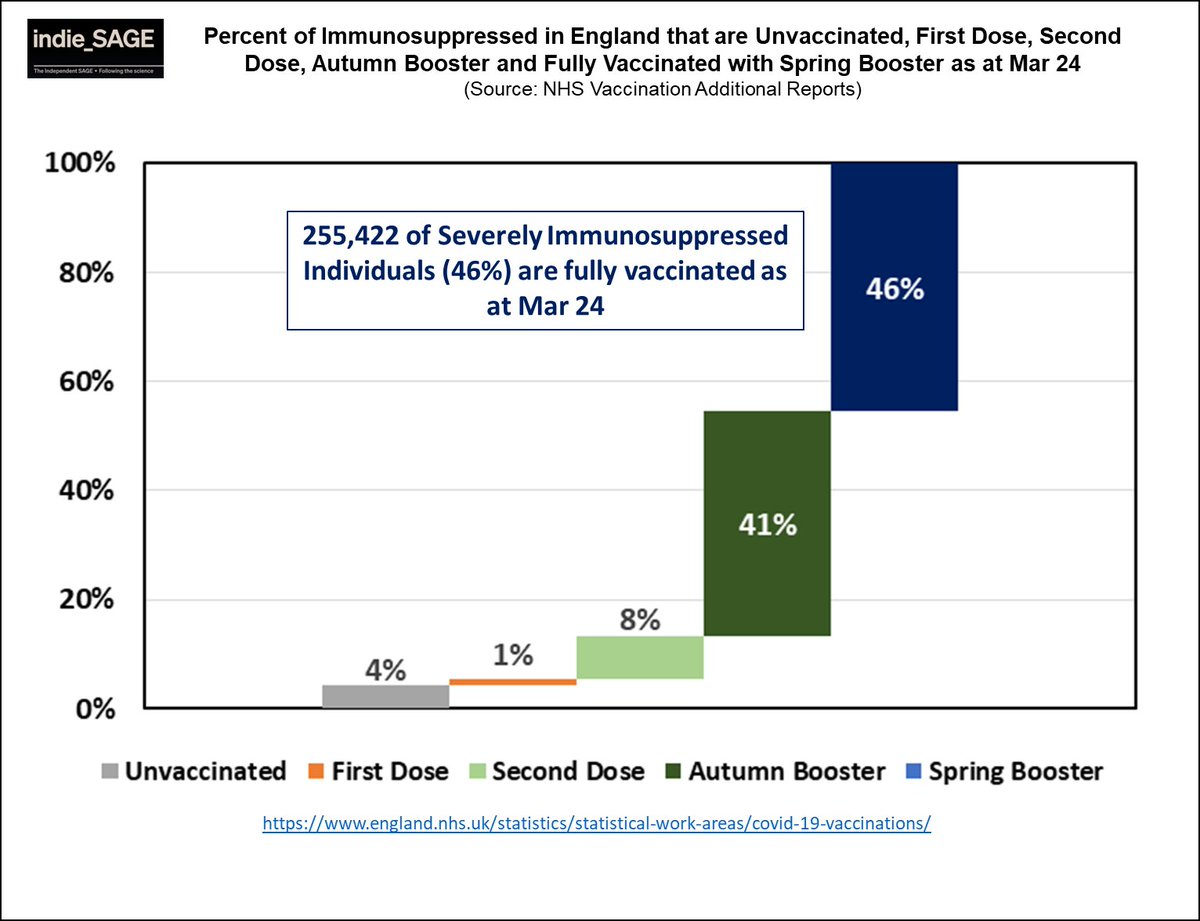
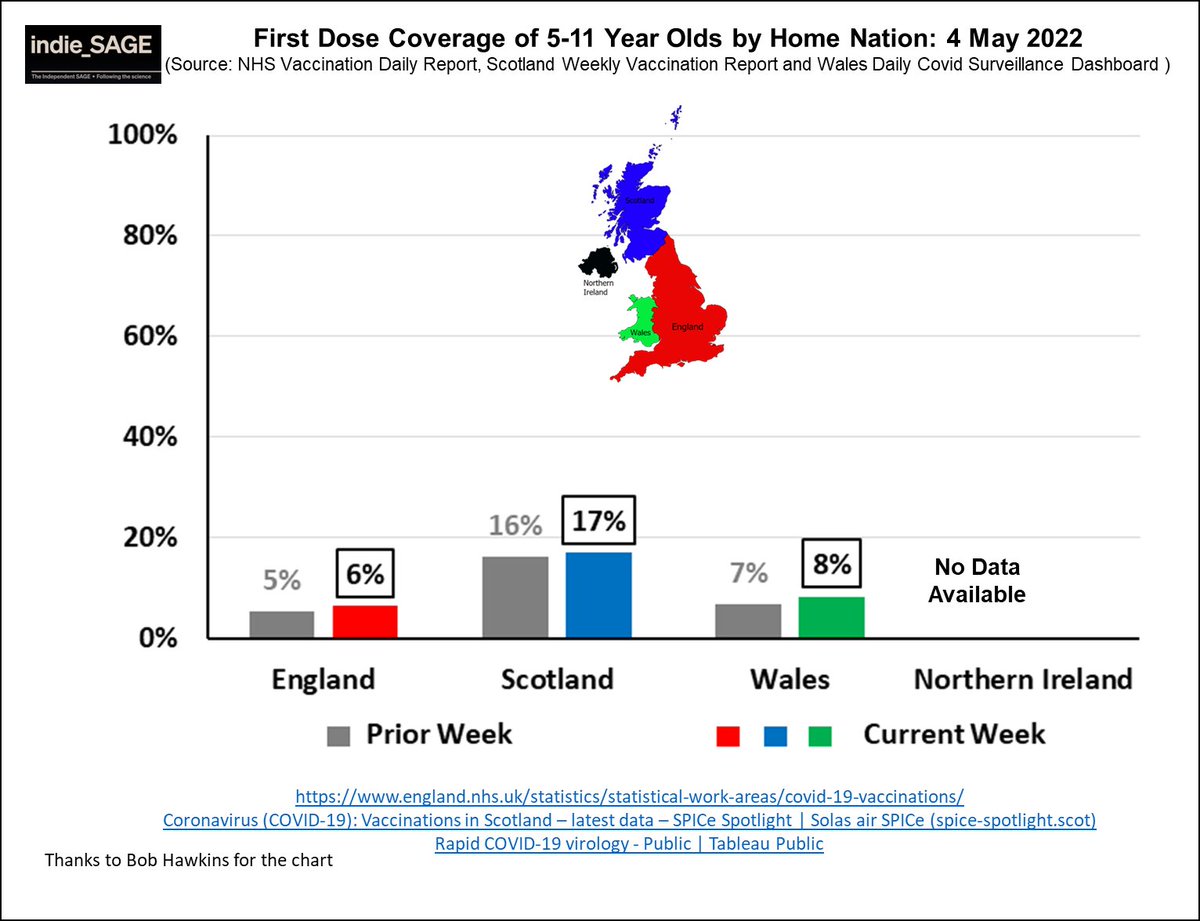
Good news on current wave though - ONS infection survey shows steep drops now in number of people infected and across all ages - particularly kids, helped by recent holidays.
Hospitalisations are falling rapidly too in all nations and across all ages. 3/14



Hospitalisations are falling rapidly too in all nations and across all ages. 3/14
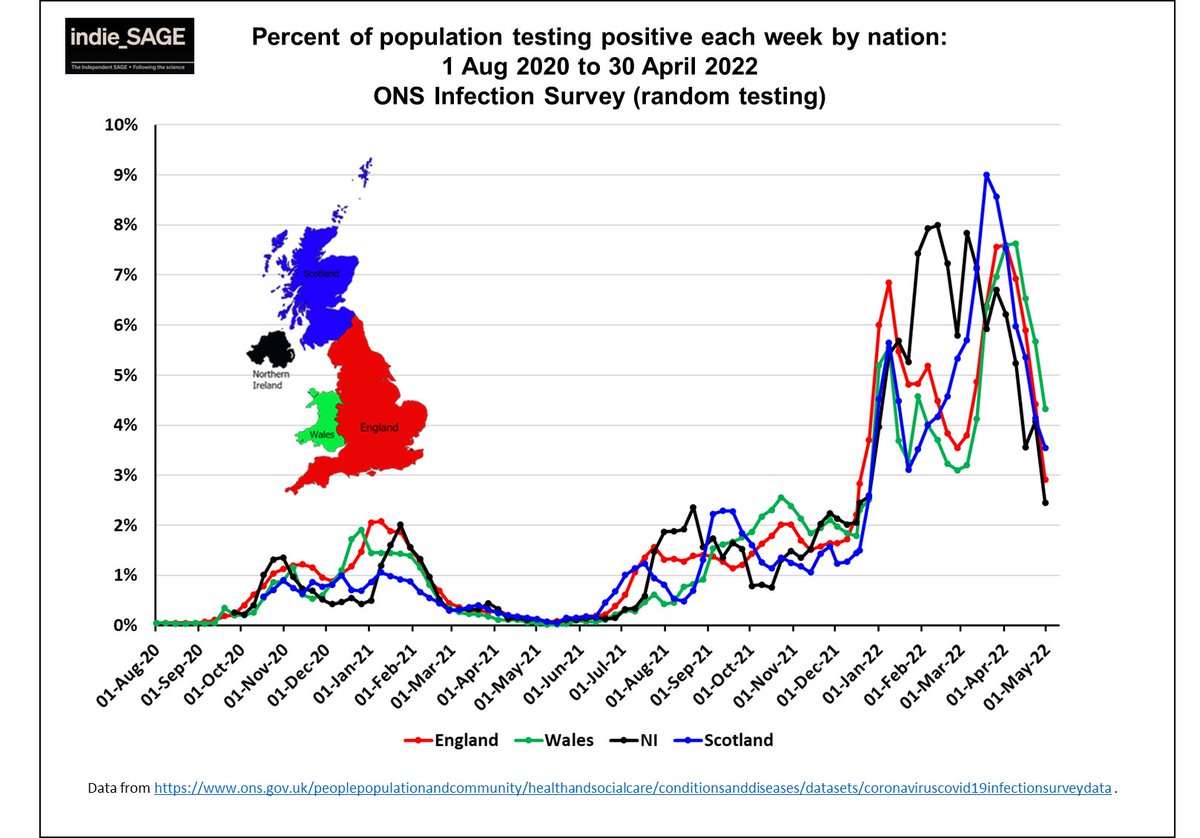
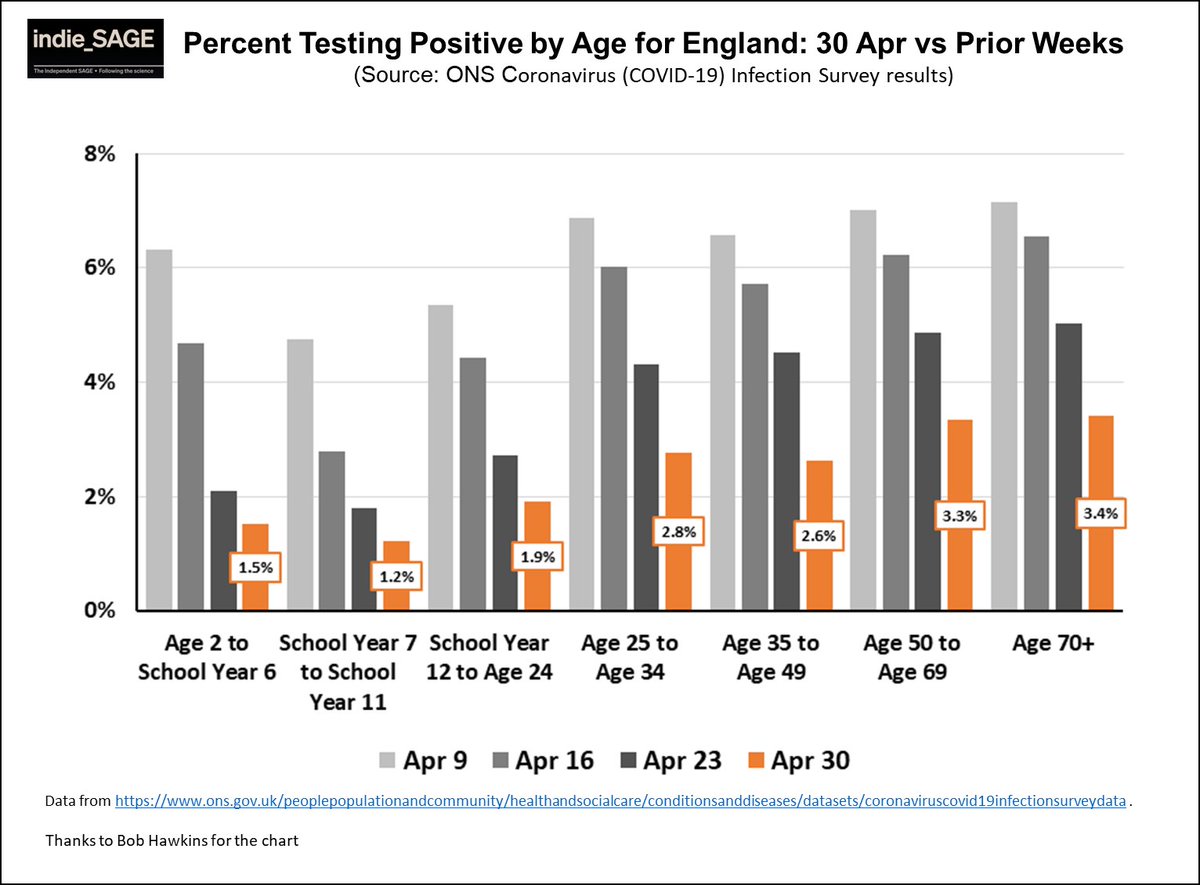
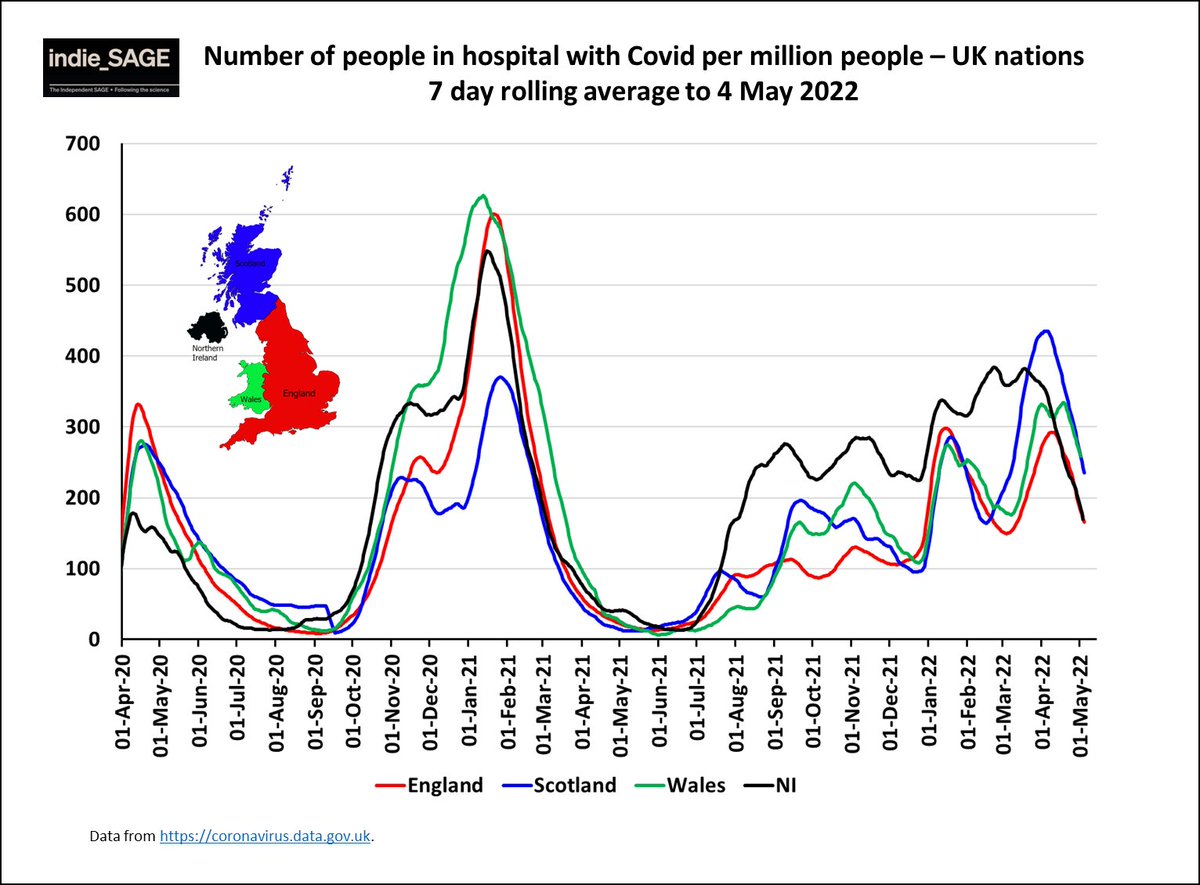
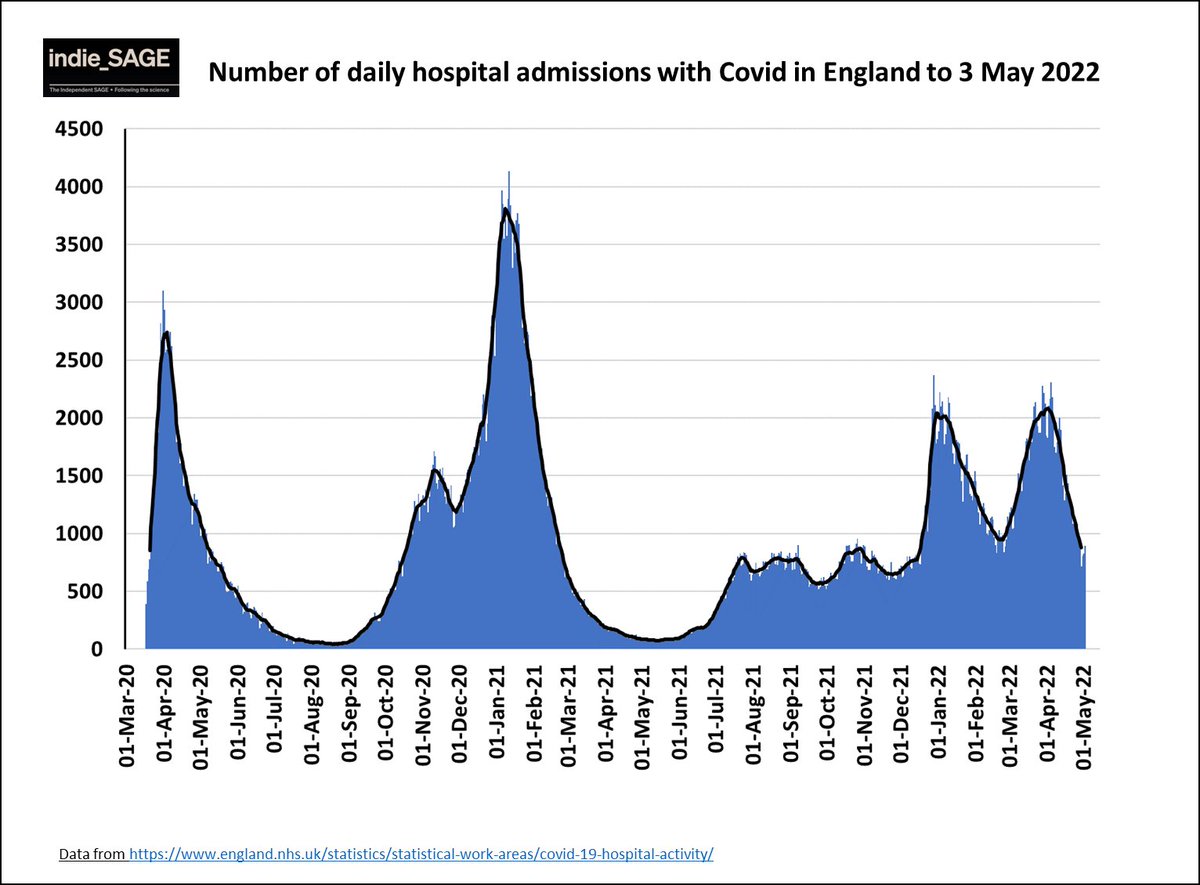
% of hosp patients there primarily cos of Covid has stabilised at ~40% from ~75% with Delta.
Likely cos of high infectiousness (-> incidental adms), high pop immunity (esp after xmas boosters) & Omicron bit milder than delta.
(even incidental need infection control tho)
4/14
Likely cos of high infectiousness (-> incidental adms), high pop immunity (esp after xmas boosters) & Omicron bit milder than delta.
(even incidental need infection control tho)
4/14
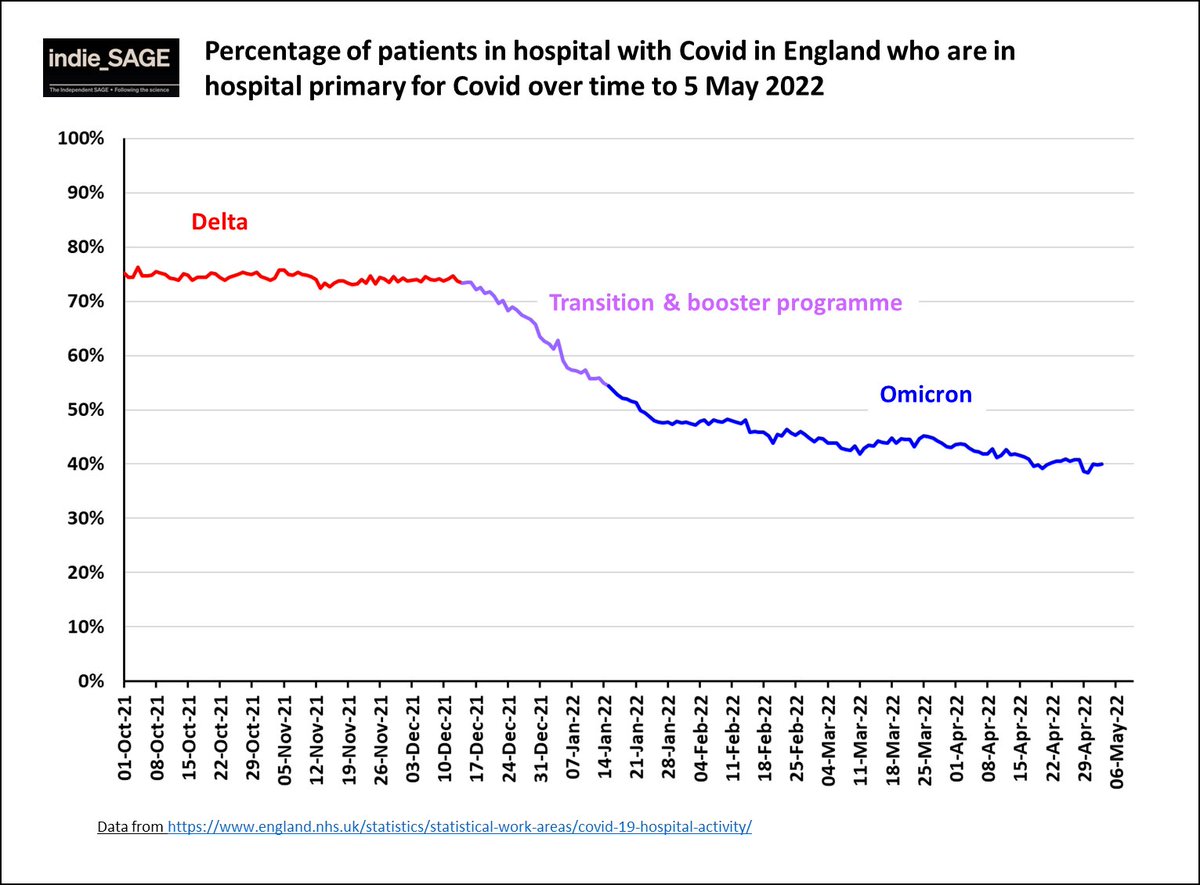
Deaths within 28 days of a positive test by date of death are declining now in all nations.
Deaths with covid on the causal pathway (death certificates) are more lagged and still going up in E&W week to 22 Apr (but affected by easter). Likely will decline from now. 5/14
Deaths with covid on the causal pathway (death certificates) are more lagged and still going up in E&W week to 22 Apr (but affected by easter). Likely will decline from now. 5/14
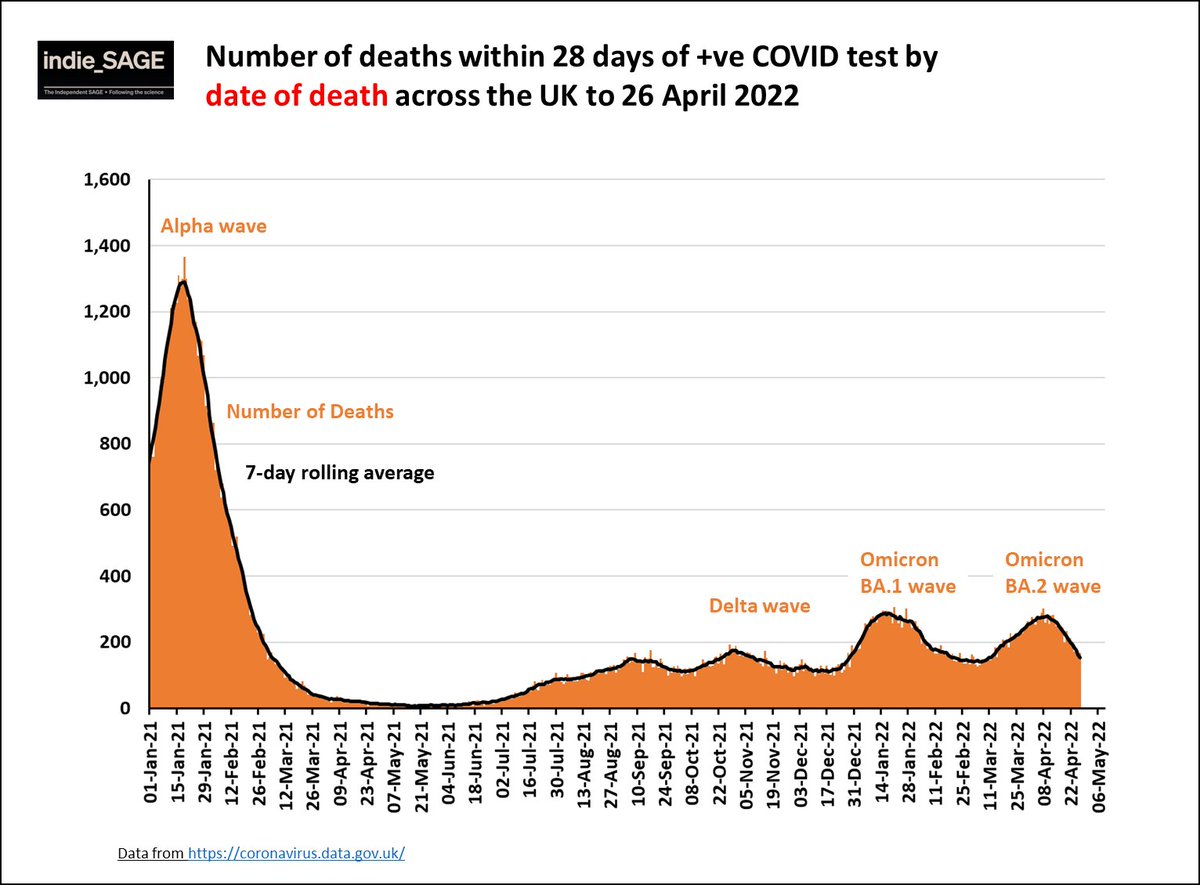
From ONS death certificates, 16,000 people have died so far in the Omicron wave.
While this is far lower than the pre-vax Alpha wave in Jan 2021, it's almost the same as died during Delta wave - despite vaccination & in shorter time period.
High nums of infections matter 6/14
While this is far lower than the pre-vax Alpha wave in Jan 2021, it's almost the same as died during Delta wave - despite vaccination & in shorter time period.
High nums of infections matter 6/14
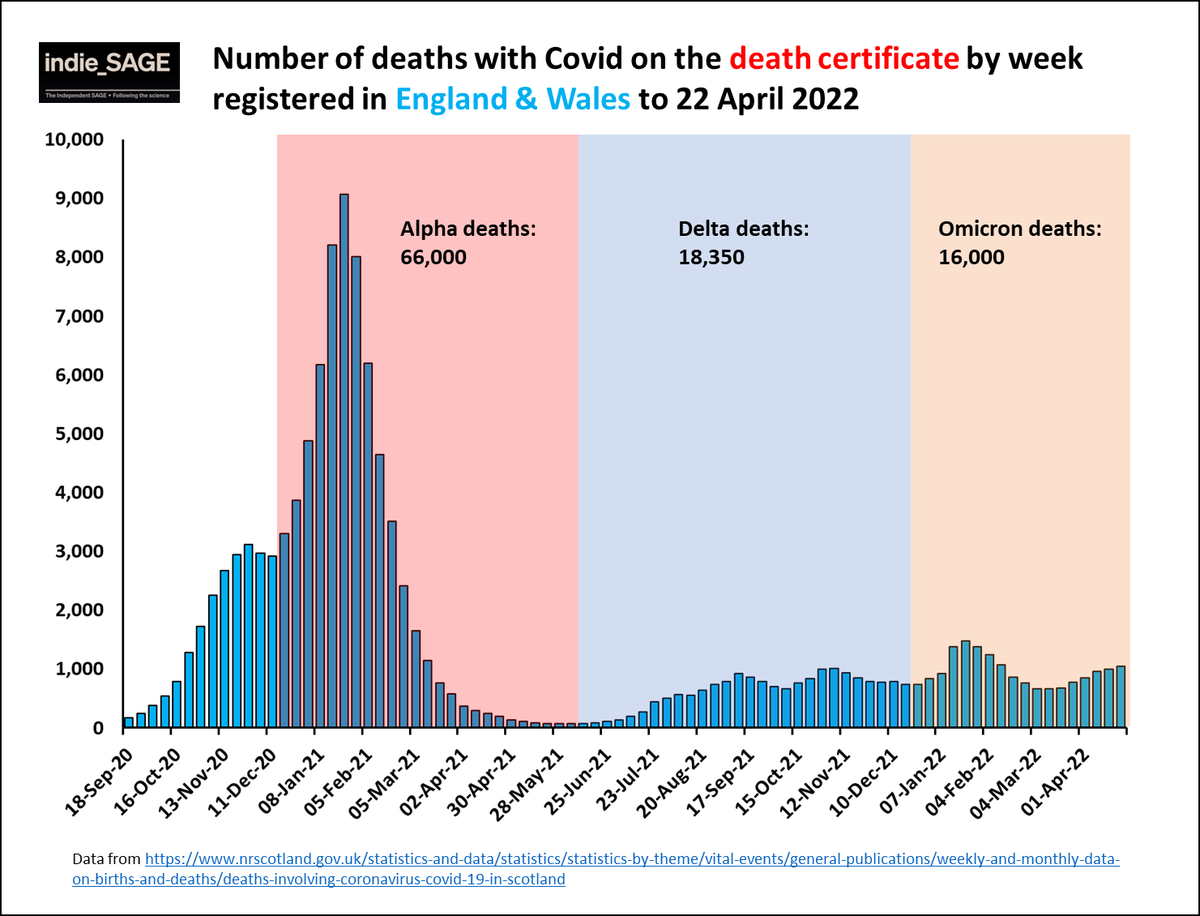
The latest ONS Long Covid report came out. It confirms that the number of people living with long covid continues to rise - now 1.8m people (2.8% of the whole population!).
Most people report some or a lot of impact on their daily lives. 7/14

Most people report some or a lot of impact on their daily lives. 7/14
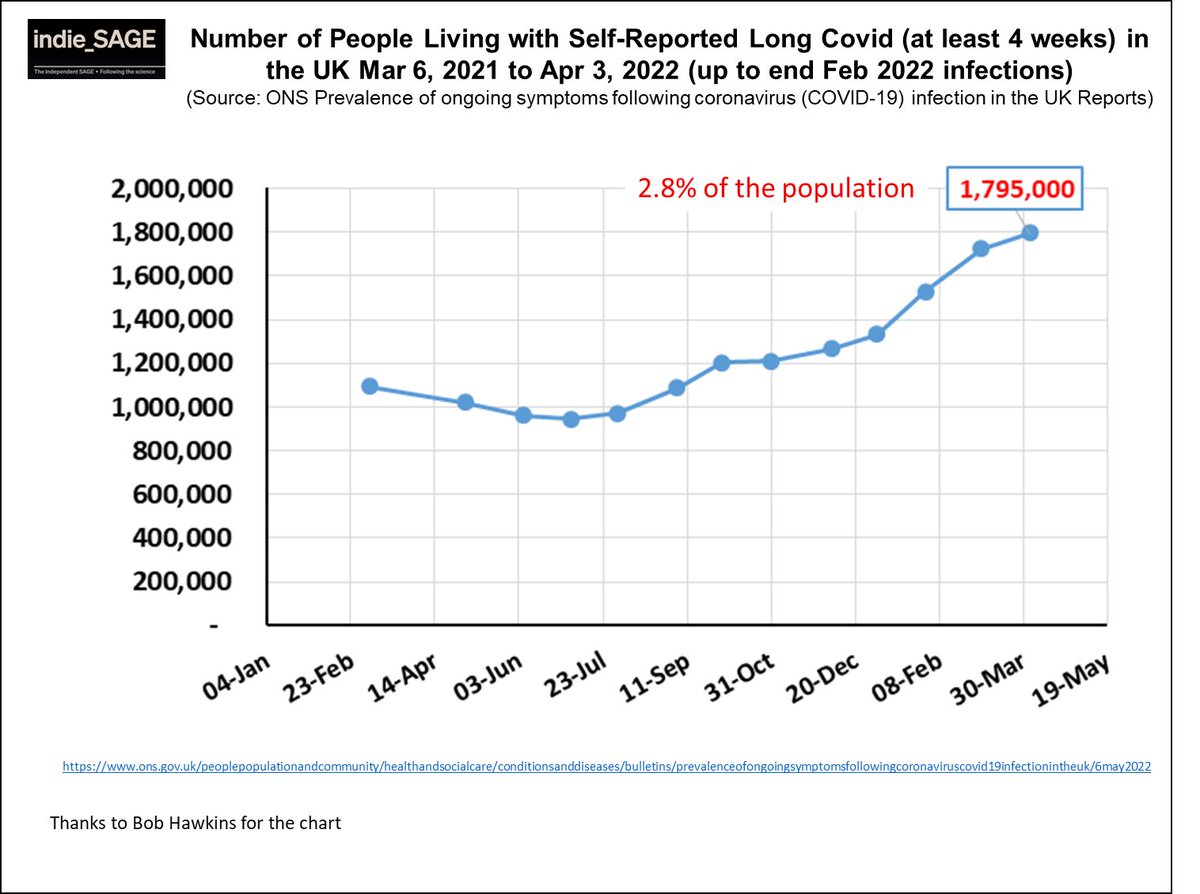
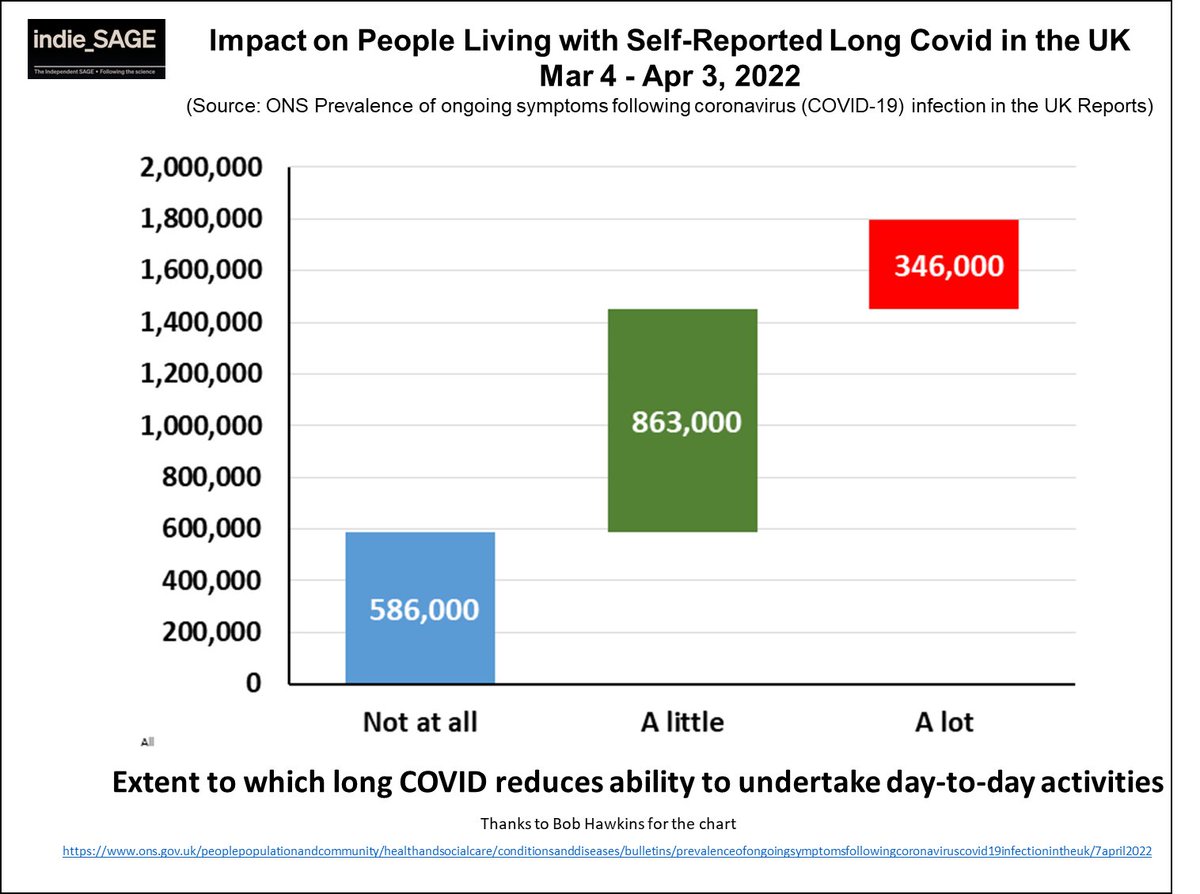
*235,000 people* have been living with long covid since the very start - over 2 years
The smaller 25K in the middle? That's from the 3 mnths last spring with v few infections (see 3/14). The almost 400K this year? All Omicron.
Infections matter. Never pretend they don't. 8/14
The smaller 25K in the middle? That's from the 3 mnths last spring with v few infections (see 3/14). The almost 400K this year? All Omicron.
Infections matter. Never pretend they don't. 8/14
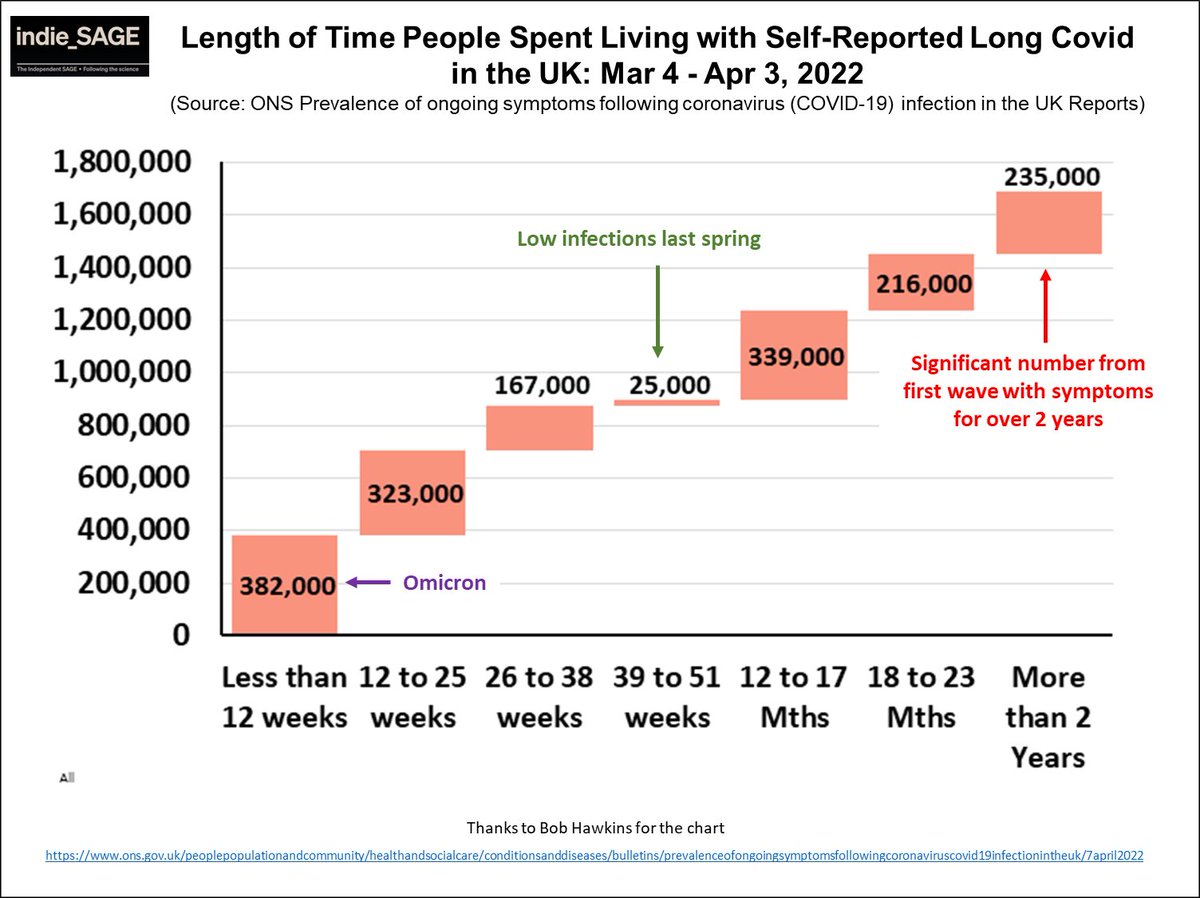
For the first time, ONS have also published proportion of triple vaxxed people who then report long covid (and by variant).
The headline news is it's about 8%-9% of people - even after boosters. About 5%-6% say it's impacting their life. That's high. 9/14
The headline news is it's about 8%-9% of people - even after boosters. About 5%-6% say it's impacting their life. That's high. 9/14
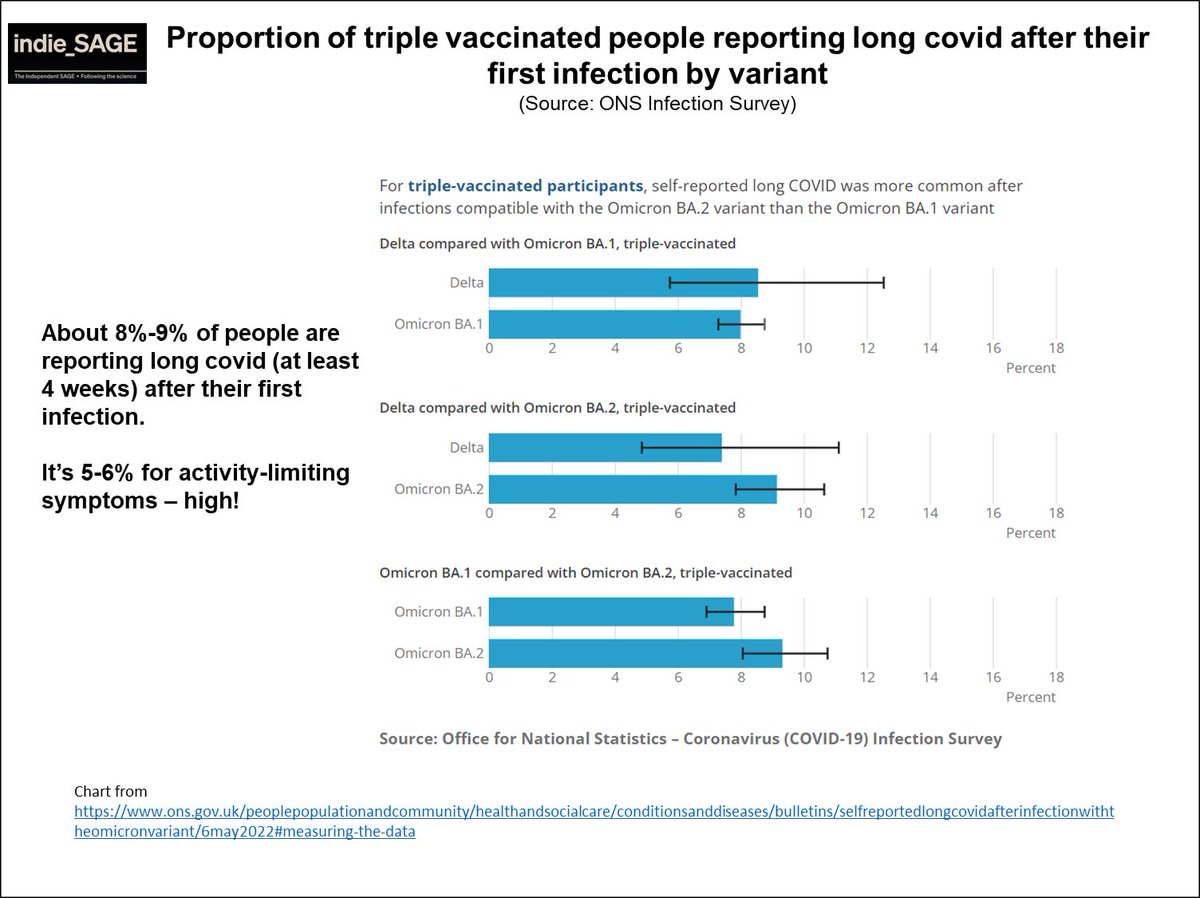
This is all for 1st infections only - we don't know yet what it looks like on second or third infection.
But if it's even vaguely similar then it's just not sustainable to have this rate of long covid - which is highest in working age adults - and key worker professions. 10/14
But if it's even vaguely similar then it's just not sustainable to have this rate of long covid - which is highest in working age adults - and key worker professions. 10/14
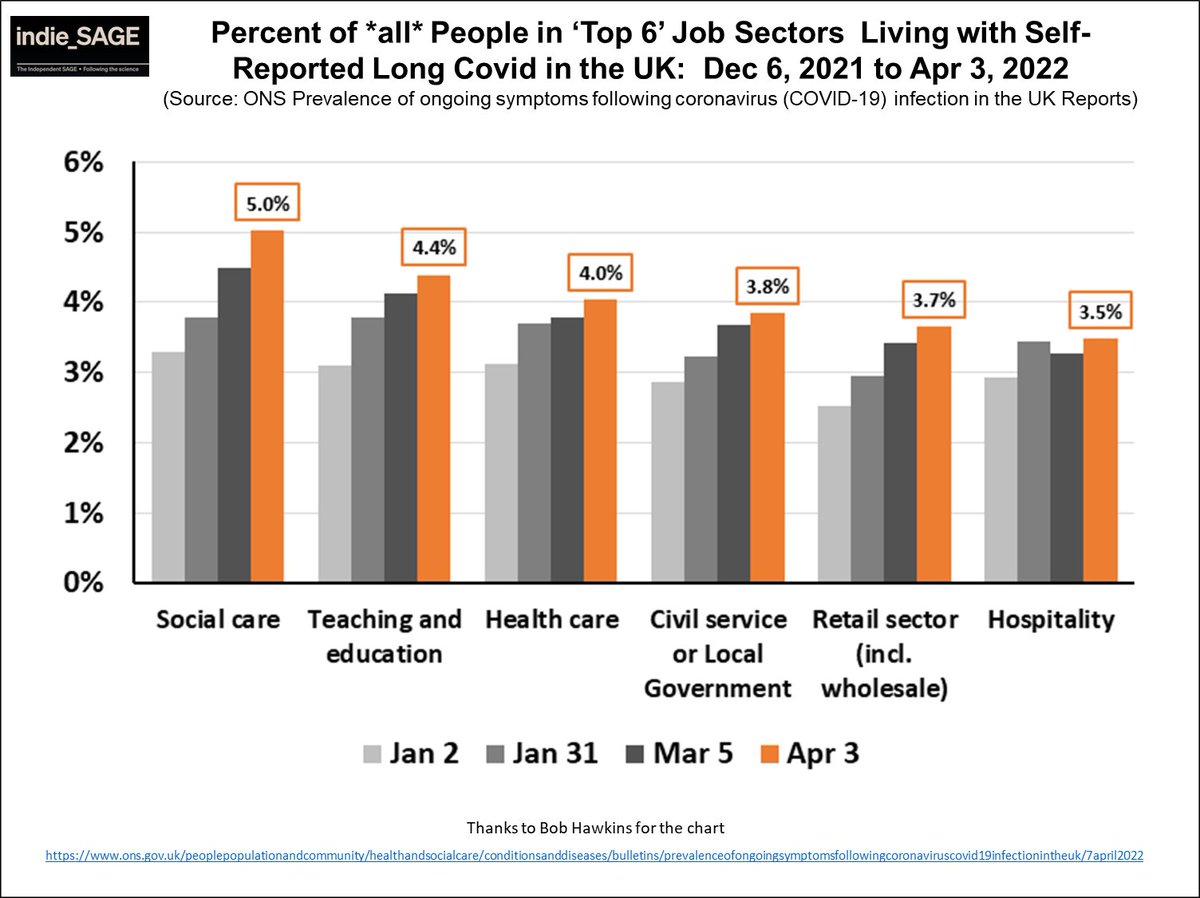
On variants - currently BA.2 is dominant in the UK - our 5th dominant variant.
Omicron subvariants BA.4, BA.5 are behind a new wave of infections in S Africa and BA.2.12.1 in the US. 11/14
Omicron subvariants BA.4, BA.5 are behind a new wave of infections in S Africa and BA.2.12.1 in the US. 11/14
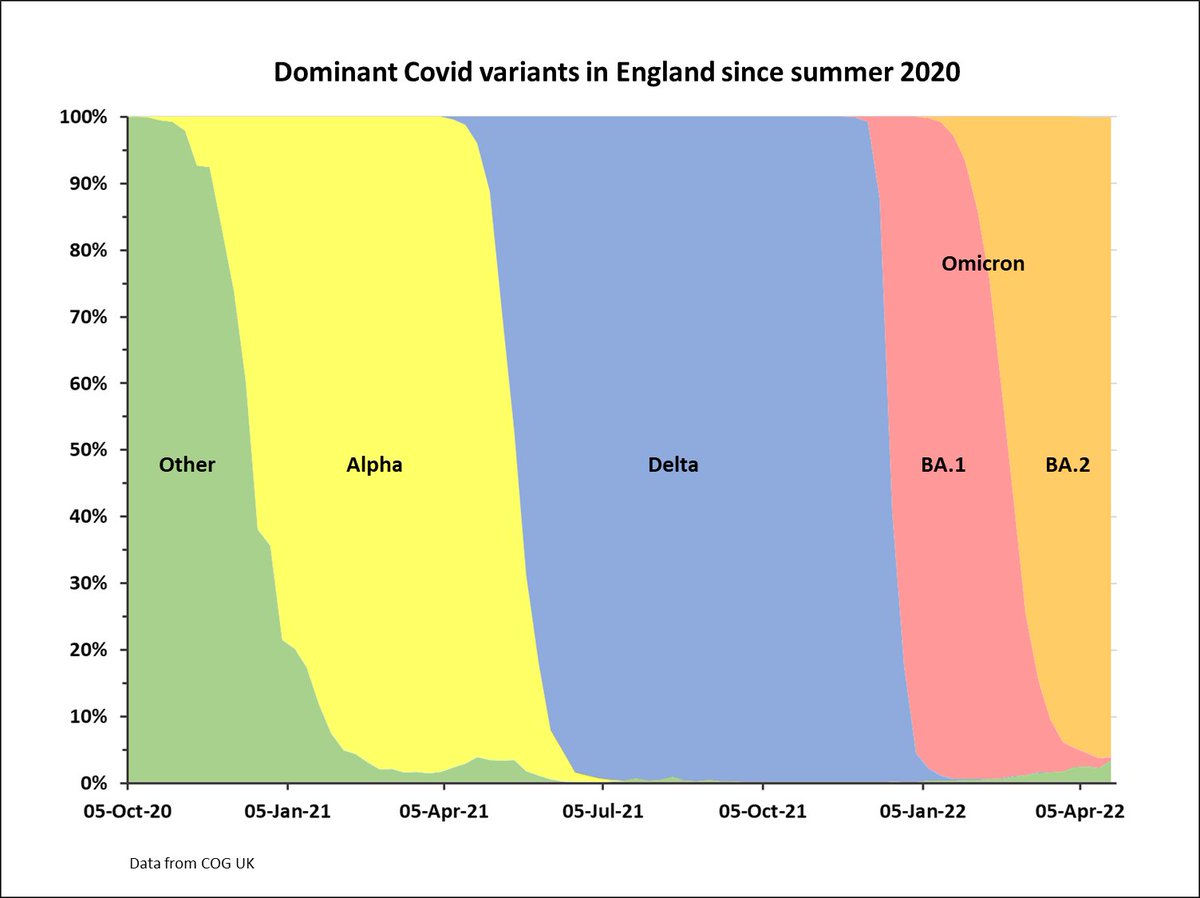
They all have advantage over BA.2 - don't seem more severe but likely to cause a new wave - perhaps small, perhaps large (depends on how our prev omicron immunity holds up + boosters + summer).
But all 3 currently growing here but still v early days. 12/14
But all 3 currently growing here but still v early days. 12/14
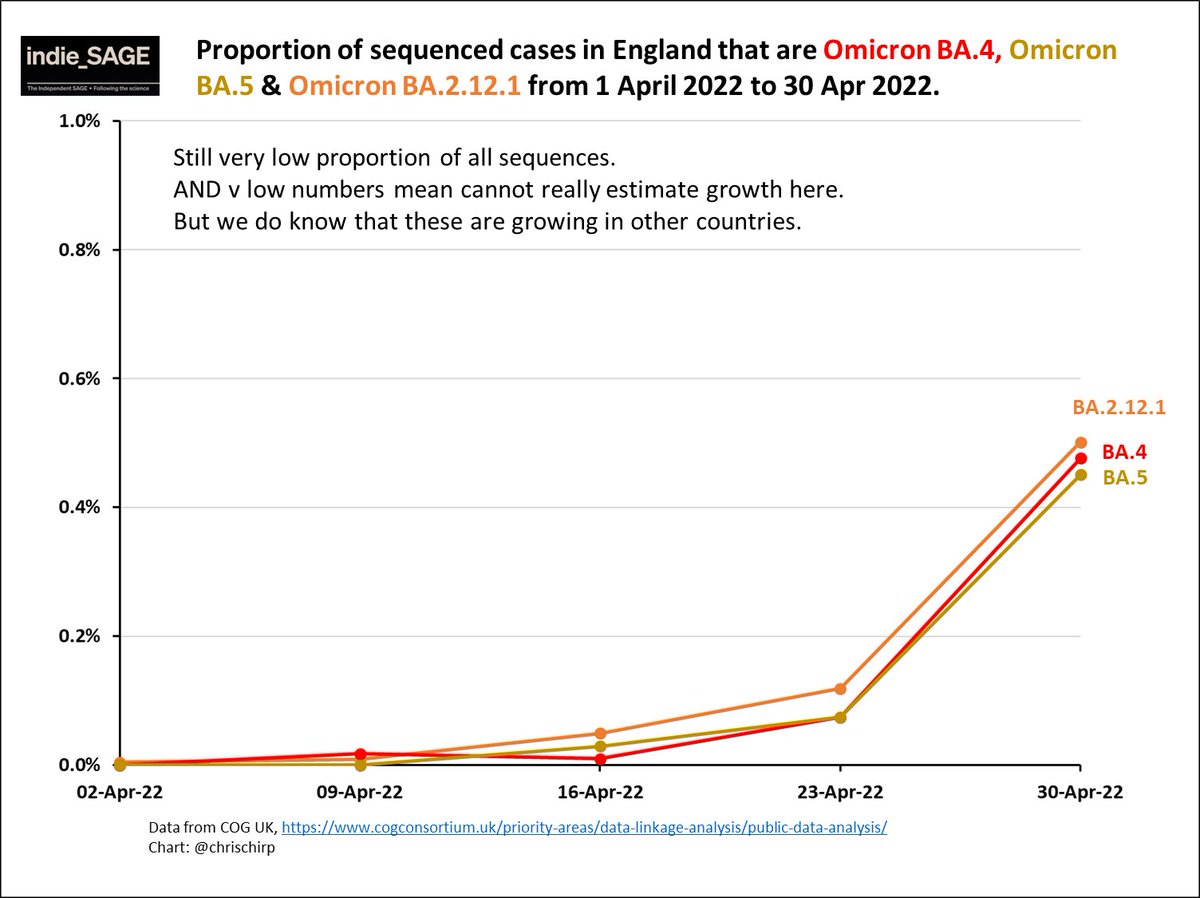
Judging by BA.2 growth against BA.1, prob at least 4-6 weeks before we see any impact on overall cases. We'll see. Also depends on if they take off in schools (v few PCR tests in kids now!).
If I had to bet, I'd bet smaller wave than last 2 but still disruptive.
13/14
If I had to bet, I'd bet smaller wave than last 2 but still disruptive.
13/14
So - this wave is on its way out which is good. But regardless of the narrative of "it's mild" and "we're living with it", we've had 1000's of deaths and 100,000s people developing long covid.
The next wave might also be sooner than we'd like. 14/14
The next wave might also be sooner than we'd like. 14/14
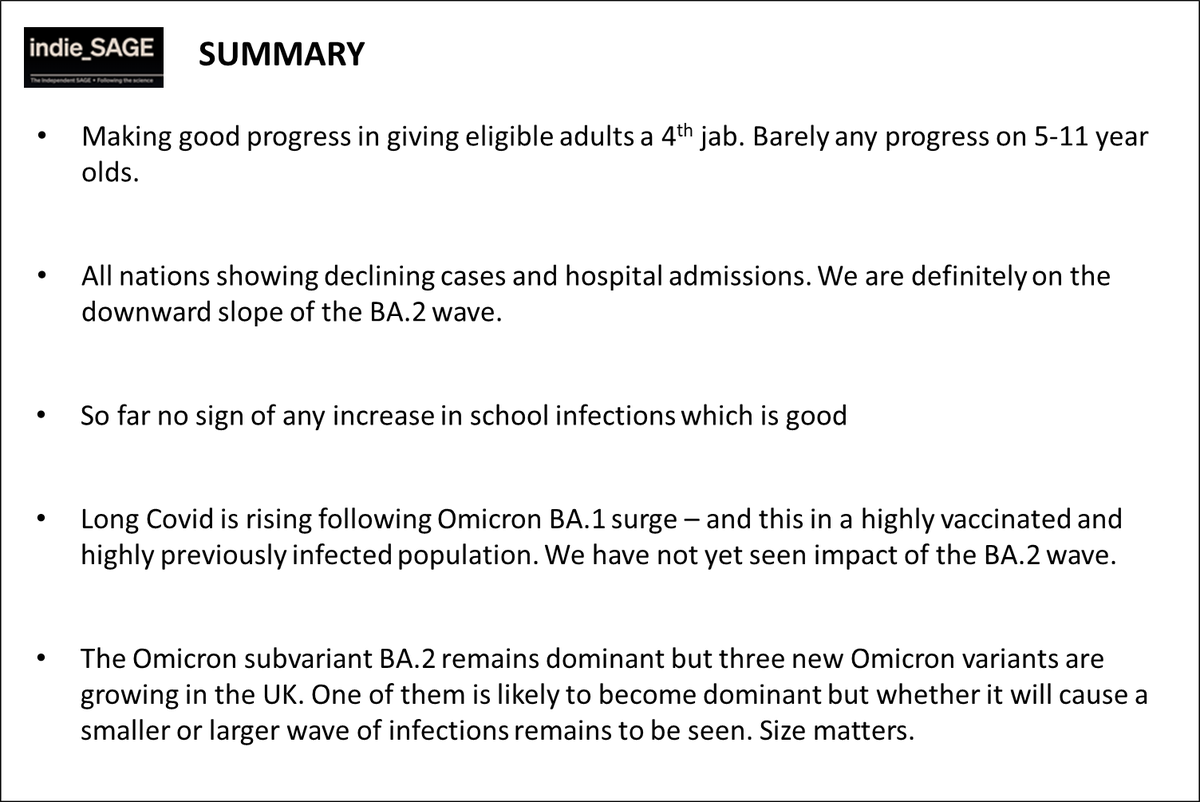
• • •
Missing some Tweet in this thread? You can try to
force a refresh























